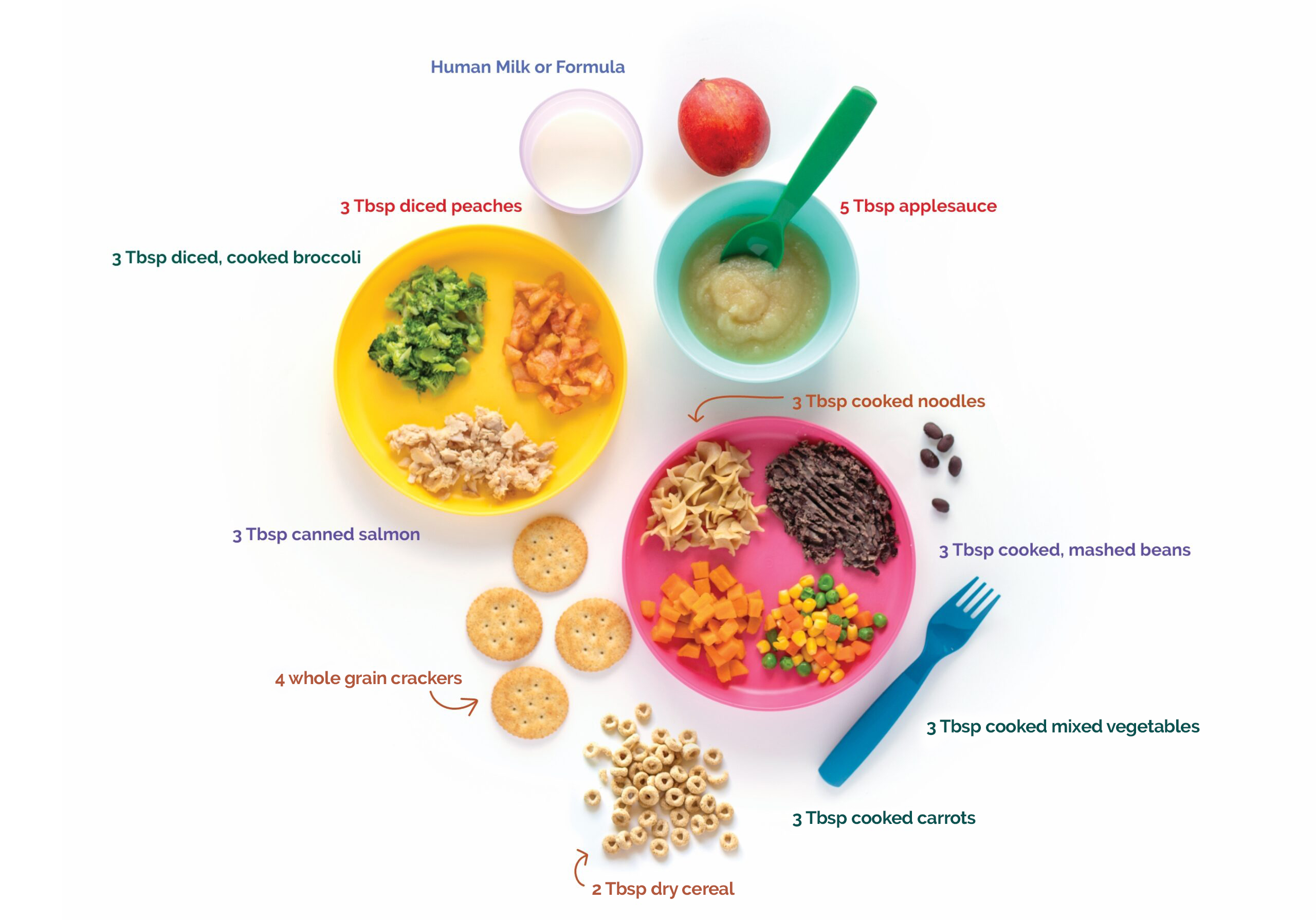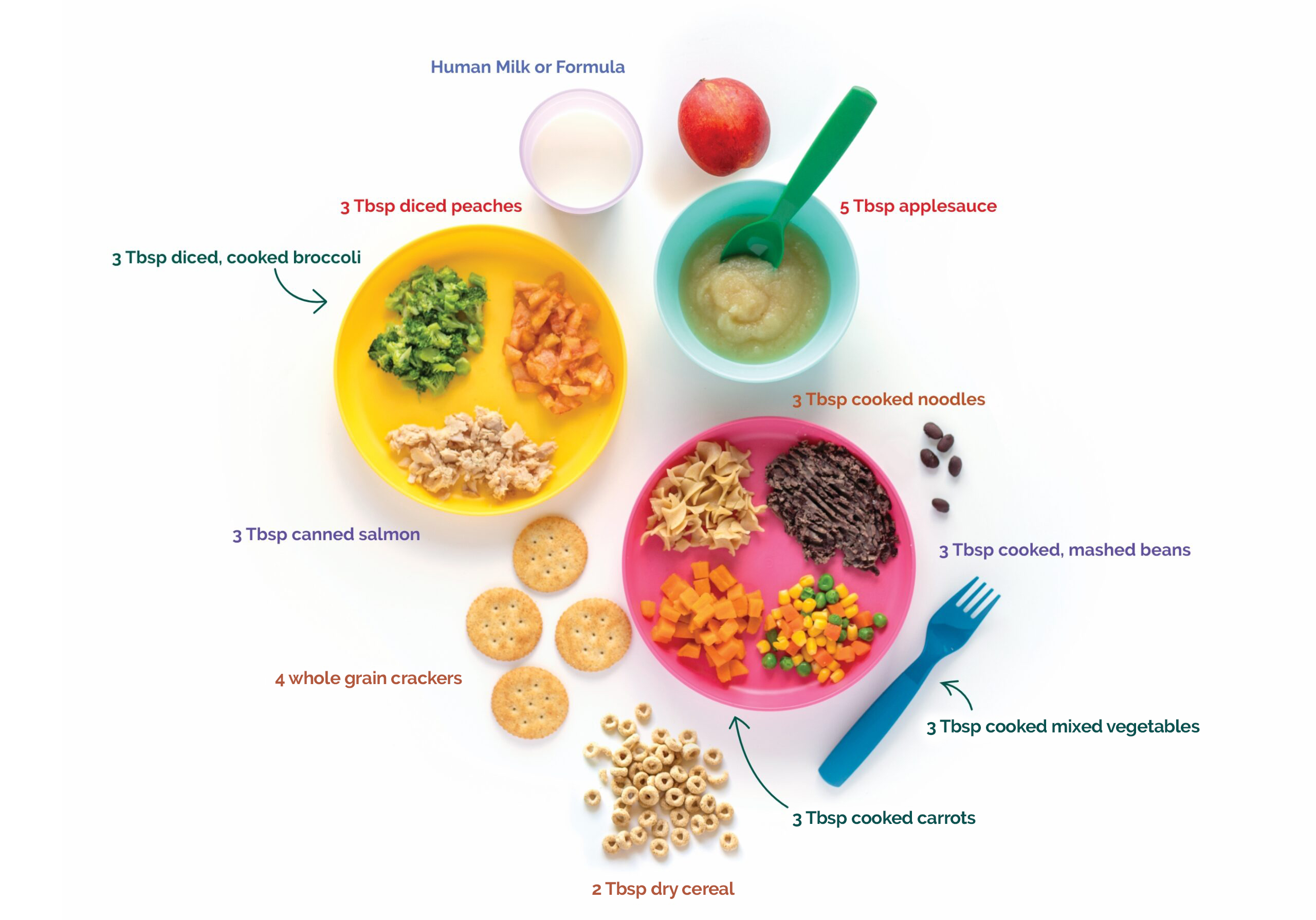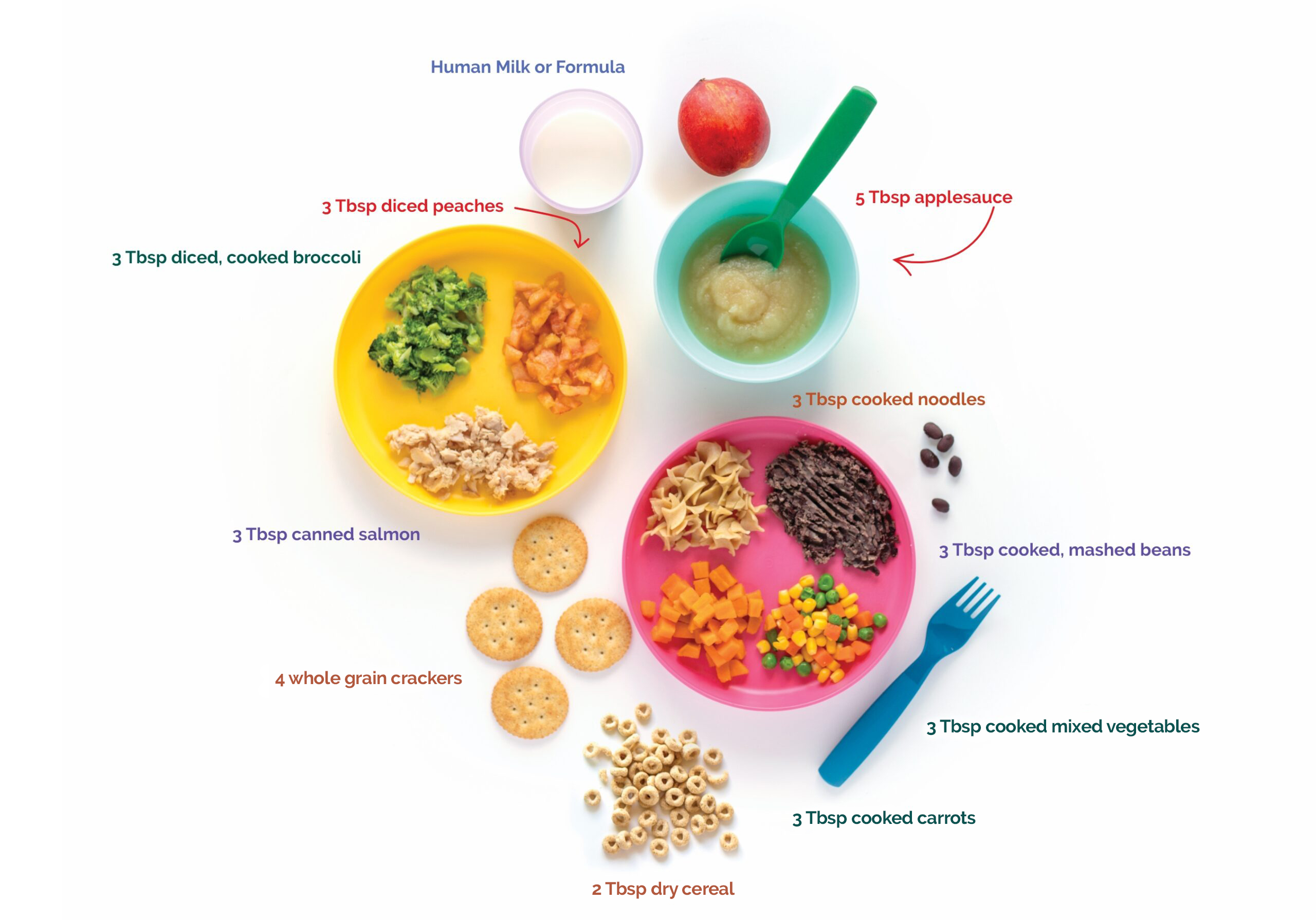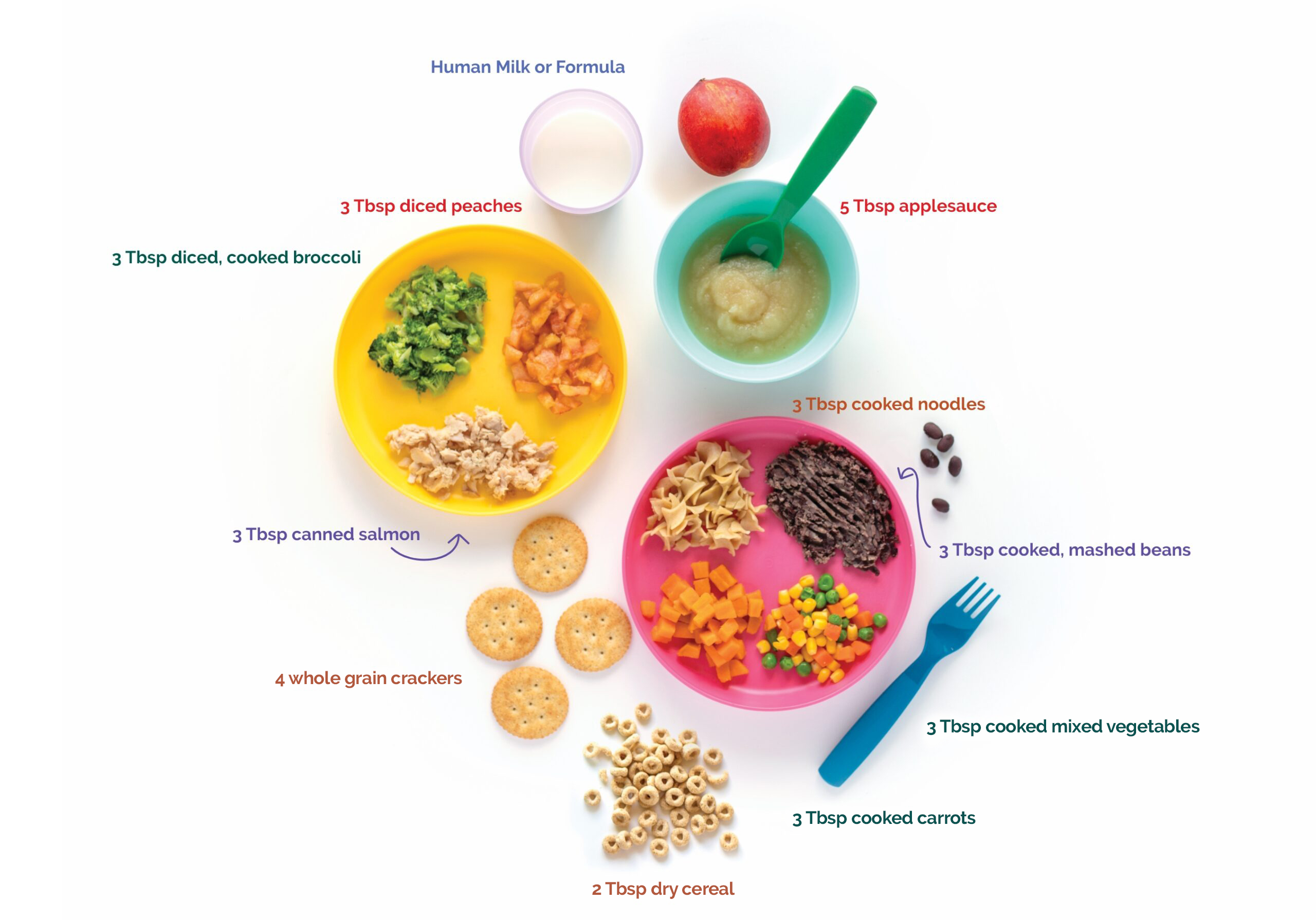Feeding a 6-7 Month Old
Feed solids with a spoon and from a bowl, never from a bottle.
Breast Milk
Infant Formula
Breast Milk
Continue to nurse on-demand, about 4-6 times in 24 hours.
Babies may experience a growth spurt around 6 months of age and may feed more often.
Offer breast milk in a cup.
Infant Formula
24-32 oz. per day of infant formula.
Offer formula in a cup.
Grains
Vegetables
Fruits
Proteins
Grains
Use breast milk or formula to prepare 2-4 Tbsp. iron-fortified infant cereal. Offer twice per day.
2-4 Tbsp. of small pieces of dry bread, baby crackers, and cereal. Offer twice per day.


Vegetables
4-8 Tbsp. per day.
Cooked, pureed, mashed vegetables.


Fruits
2-4 Tbsp. per day.
Cooked, pureed, mashed fruits. Applesauce, pureed peaches, or mashed banana.


Proteins
2-4 Tbsp. per day.
Plain strained, mashed, or pureed meats, poultry, eggs, fish, or legumes.
May add smooth whole milk yogurt.
Thinned, smooth peanut or nut butter.





















